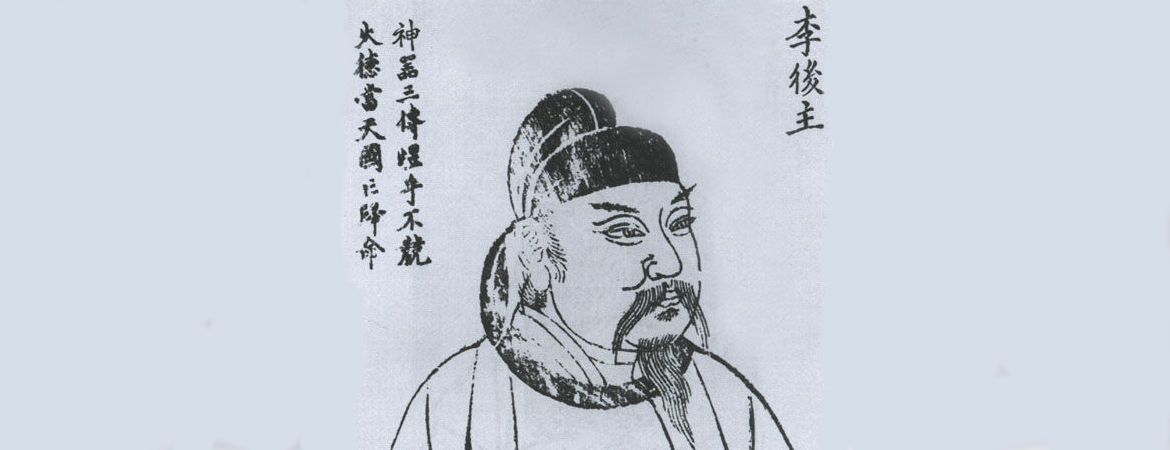Li Yu (Southen Tang)
Li Yu(937–978), also known as Houzhu of Southern Tang (南唐后主), was the last ruler of the Southern Tang Kingdom from 961 to 975 during the Five Dynasties and Ten Kingdoms Period. He was also a well-known poet, even to the extent of having been called the "first true master" of the ci form. As a poet, he is generally known by his family name and his given personal name, that is as "Li Yu", rather than by the names or titles associated with his political involvement.
No known for his governing skill, Houzhu is nevertheless a highly accomplished scholar, he had allow himself indulged with artistic and literature pursuits, with little regard to the strong Song Kingdom that eying its weaker neighbor. On 971, Houzhu drop the name of Tang from its Kingdom's name, in a desperate move to please the mighty Emperor Taizu of Song.
Of the many other kingdoms surrounding the Southern Tang, only Wuyue to the east had yet to fall. The Southern Tang's turn came in 974, when, after several refusals to summons to the Song court, on the excuse of illness, Song Dynasty armies invaded. After a year long siege of the Southern Tang capital, modern Nanjing, Li Houzhu surrendered, in 975; and, he and his family were taken as captives to the Song capital at present-day Kaifeng.
Although, Li Yu indeed was a great exponent and developer of the Ci poetry form, which form sometimes or often seems to characterize poetry of the Song Dynasty, there is also some difficulty in categorizing him as a Song poet: the Southern Tang state is more of a continuation of Tang than a precursor on the Song side of the divide of the history of the Tang-Song transition. Li Yu represents both a continuation of the Tang poetry tradition, as well as representing the Ci poetic style which is so especially associated with the poetry of Song.
Li Houzhu devoted much of his time to pleasure-making and literature, and this is reflected in his early poems. A second phase of Li's ci poems seems to have been the development of a sadder style after the death of his wife, in 964.[4] However, his best-known, and saddest, poems were composed during the years after the Song formally ended his reign in 975. He was created the Marquess of Wei Ming (Chinese: 违命侯; literally, the Marquess of Disobeyed Edicts), a token title only: actually, he was a prisoner. Li's works from this period dwell on his regret for the lost kingdom and the pleasures it had brought him.
He developed the ci by broadening its scope from love to history and philosophy, particularly in his later works. He also introduced the two stanza form, and made great use of contrasts between longer lines of nine characters and shorter ones of three and five. Only 45 of his ci poems survive, thirty of which have been verified to be his authentic works, the other of which are possibly composed by other writers: also, seventeen shi style poems remain to his credit.[5] His story remains very popular in many Cantonese operas.
One of Li Yu's most famous poems, popularly known as "Alone up the Western Tower" (独上西楼), was written after his capture.
无言独上西楼 Alone to silence, up the western tower, I myself bestow.
月如钩 Like silver curtain hook, so does the moon glow.
寂寞梧桐 The fallen leaves of one forsaken parasol
深院锁清秋 Make deeper still the limpid autumn locked up in the court below.
剪不断 Try cutting it, it is still profuse –
理还乱 More minding will but more confuse –
是离愁 Ah, parting's such enduring sorrow!
别有一番滋味在心头 It leaves behind a very special taste the heart alone could know.
From Wikipedia

